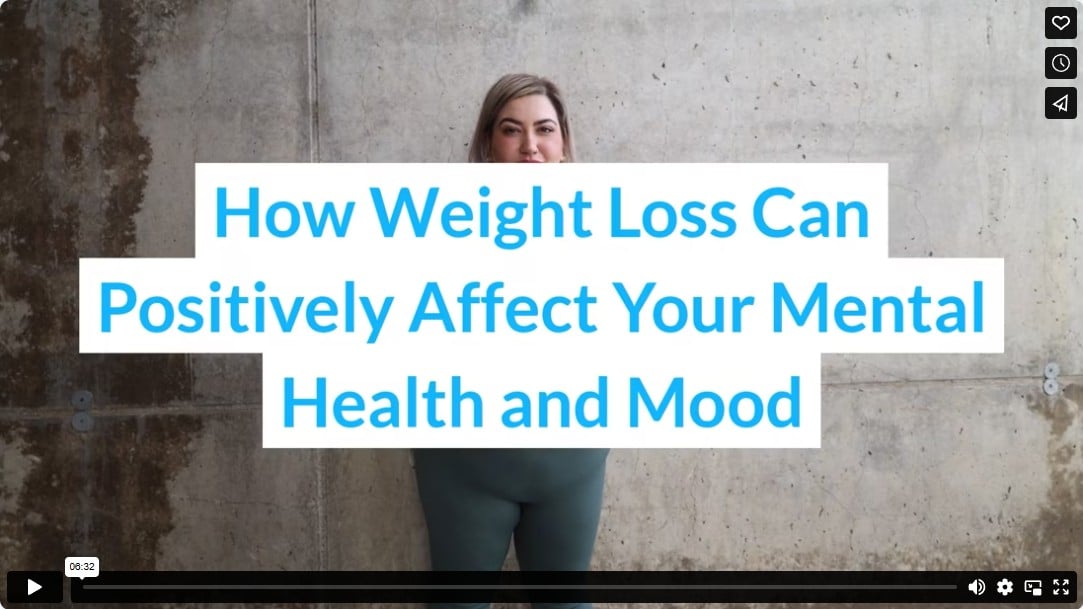How Weight Loss Can Positively Affect Your Mental Health and Mood

Think weight loss only transforms your body? You’re in for a treat! It might just give your mood a makeover, too.
Sure, when you start your weight loss journey, you focus on the physical changes like a smaller clothing size, improved mobility, or lower blood pressure. But the boost to your mental health and mood is just as significant. Shedding excess weight can shift how you feel day to day and how you interact with the world.
If you’ve struggled with low energy, irritability, or even symptoms of anxiety or depression, you may find that losing weight is like clearing fog from your windshield. You start to see life with a sharper focus. It offers emotional clarity, renewed confidence, and a more positive outlook. Every day life becomes more manageable.
With so many tools available today, from smart nutrition strategies to weight loss injections online, taking that first step can be much less daunting. Losing weight can be a turning point, not just for your waistline but also for your emotional and mental well-being.
The Connection Between Weight and Mental Health
Your mind and body are deeply connected, and excess weight can affect both. Lugging around extra pounds can feel like carrying a backpack full of bricks—physically tiring and emotionally draining. It can lead to chronic fatigue, reduced self-esteem, and higher levels of cortisol, the body’s primary stress hormone. If you’ve felt stuck in a cycle of emotional eating, followed by guilt or frustration, you know that emotional rollercoaster is exhausting.
On the flip side, when you start losing weight, your mental health can take a noticeable shift. It’s all about feeling like the driver of your own life again. You could regain a sense of control and develop healthier coping mechanisms. This progress reinforces your self-worth and gives you the mental mojo to keep the momentum flowing.
Improved Mood and Emotional Resilience
One of the first mental shifts you may notice with weight loss is a brighter, more stable mood. It’s all about your hormones. Regular movement, better nutrition, and less inflammation work behind the scenes to shift your brain chemistry for the better.
Exercise and diet improvements influence the production of endorphins, serotonin, and dopamine, neurotransmitters that play a big role in how you feel. When these chemicals are balanced, you’re more likely to experience emotional stability, feel motivated, and handle stress without blowing a fuse.
Even something as simple as getting outside for a brisk walk can elevate your mood. Subtract the aches and pains that often come with carrying extra weight and get prescribed weight loss medication online, and daily life starts to feel a lot more manageable and a whole lot sunnier.
Confidence and Self-Image Improvements
Let’s face it. The way you see yourself influences how you interact with others. If you’ve avoided social events, hesitated to speak up at work, or felt like you were hiding in your own life because of your weight, you’re not imagining those struggles. They’re real and often have roots in how confident you feel in your skin.
As you start to lose weight, that confidence can begin to rebuild. Suddenly, catching your reflection in a store window feels less like a cringe and more like a fist bump. You might notice that you carry yourself differently or are more willing to try new things. These changes go far beyond vanity, impacting your mental health by giving you a renewed sense of self-worth, reminding you that you’re evolving.
Over time, this growing confidence can transform how you show up in relationships, your career, and your personal goals. You start to feel worthy of good things, and that mindset attracts more of them like a magnet.
Better Sleep, Better Thinking
You might not realize how closely weight and sleep are connected. Excess weight, especially around the neck and chest, can contribute to conditions like obstructive sleep apnea, which interrupts your sleep cycles and leaves you feeling foggy-brained even after a full night in bed.
When you begin to lose weight, these breathing interruptions often reduce or disappear entirely. That means more deep sleep, fewer nighttime awakenings, and a much clearer head in the morning. Improved sleep translates to better focus, emotional regulation, and memory—all of which give your mental engine a serious tune-up.
Poor sleep may be to blame if you’ve found yourself short-tempered or forgetful. A Mounjaro delivery right to your doorstep won’t solve every cognitive issue, but the weight loss it helps you achieve could be the key to unlocking more restful nights and brighter, calmer days.
Reduced Anxiety and Depression Symptoms
While weight loss is not a cure for anxiety or depression, it can absolutely ease some of the symptoms. Physical activity, healthy eating, and better sleep work together to regulate the nervous system and stabilize your emotional foundation, like tightening the bolts on a shaky ladder.
If you’ve been dealing with the weight of self-criticism or feeling stuck in a loop of emotional eating, losing weight can break that cycle. You start to trust yourself more. You become someone who shows up for yourself on purpose by following through on commitments and creating structure in your life.
As your energy increases and your self-image improves, daily stressors that once felt overwhelming begin to shrink. You may still experience anxiety or low moods at times, but you’ll have more tools and a stronger “why” to manage them in healthy ways.
Rebuilding Social Connections
Weight gain can be isolating. In the past, you may have avoided social events out of embarrassment or because you felt judged by friends and family. That isolation can lead to loneliness, which has a real impact on mental health.
Losing weight can reopen the door to relationships and connection. You might feel more confident joining group activities, accepting invitations, or dating. These renewed social interactions provide a powerful mental health boost by reinforcing your sense of belonging and helping you remember how good it feels to laugh with someone else.
And when others notice your transformation, it can spark supportive conversations that further validate your efforts. Just be careful not to let external validation become your only motivator. The best compliment is the one you give yourself in the mirror.
Take Back Control Over Your Life
Perhaps the most underrated mental health benefit of weight loss is the sense of agency it gives you. When you commit to a weight loss journey and stick with it, you prove to yourself that change is possible. That belief can ripple into everything from your career to your relationships.
As routines form and results show up, you realize you’re not at the mercy of your cravings or old habits. You’re building a life that supports your emotional well-being, and that’s real power.
If you’ve been stuck in a loop of poor sleep or low energy, weight loss could be the catalyst that changes your life. But don’t pursue it just to hit a number on the scale. Do it because you deserve to feel strong, proud, and at peace in your own skin.
Your mind deserves the same care as your body, and transforming one can lift the other in ways you never imagined.
Video

Infographic
Losing weight can significantly enhance your physical and mental well-being, reducing fatigue, low mood, and self-doubt. With many resources available, from nutrition strategies to online weight loss injections, starting your journey can be less daunting. Learn about the mental health benefits of weight loss in this infographic.



